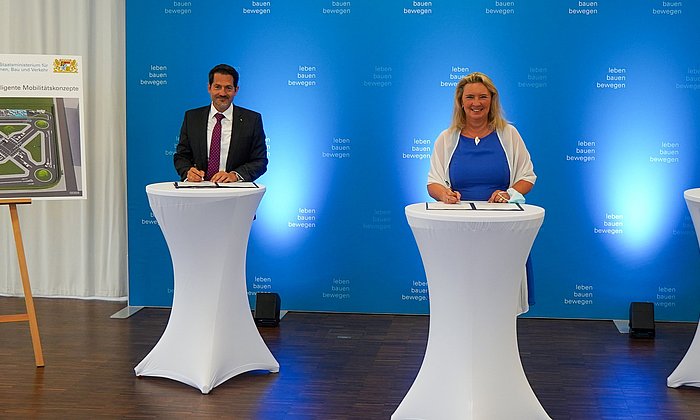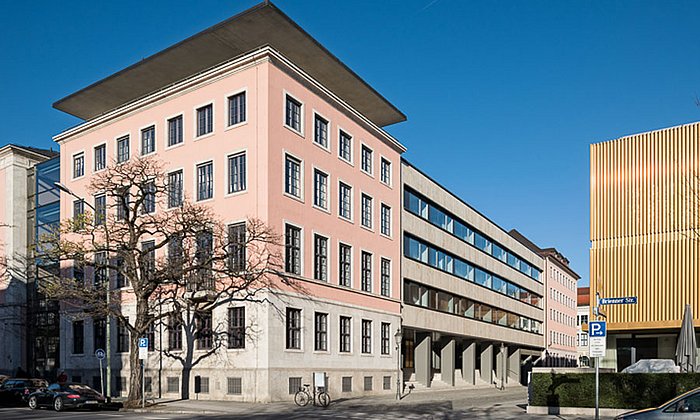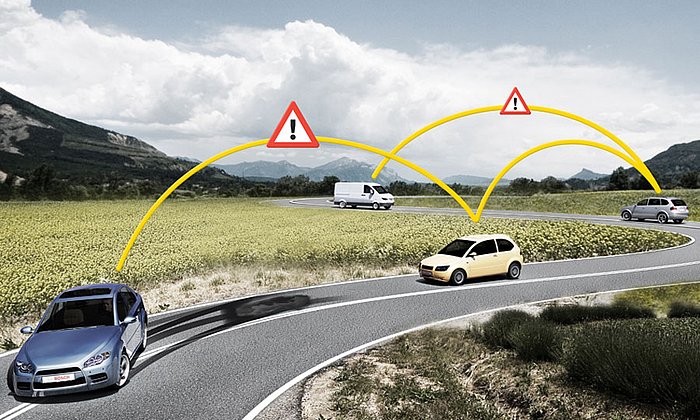Call to participate in citizen's research project
Changes in mobility behavior
![[Translate to en:] [Translate to en:]](/fileadmin/user_upload_87/_processed_/4/c/csm_20220523_TUM_Think_Tank_Mobility_AH_684119_62b81e996c.jpg)
The survey and all further information on the study can be found on the web. Participants will be interviewed three times more the end of the year regarding their mobility and energy behavior. The login data will be stored exclusively at TUM in compliance with strict data protection regulations. In addition, 1000 interested participants will have the opportunity to automatically track their movements using an app – of course on a completely anonymized basis. Registration is also possible on the web site. A total of four mobility vouchers worth 250 euros will be given away at random to participants.
Exploring the impact of the state's asset relief package
Research director Prof. Klaus Bogenberger says: "Our objective is to use this data to capture changes in mobility behavior. This information will serve as the basis for conclusions about the mobility of tomorrow: For example, will the Nine Euro Ticket actually catch on and will it actually motivate people to switch from their cars to busses and trains? Or will people continue to rely on their cars when fuel prices drop again due to the temporary tax cuts? This is a gigantic and reality-based experiment which we will evaluate in scientific terms." The study is receiving support from the Munich city government, Munich's traffic and transportation district MVV and the Munich transportation corporation MVG.
Munich's vice-mayor Katrin Habenschaden said: "We in Munich are working full speed ahead to transform transportation. An improved service range and a simple, attractive fare system are highly essential here. The Nine Euro Ticket for public transportation this summer is not only a great deal, it will also turn the city into a gigantic living laboratory. We hope the "Mobilität.Leben" study will help us learn from this experiment. We want to find out whether or not a fare like this will prove more attractive to commuters or excursion passengers, how many additional passengers it attracts to busses and trains, and how many people will switch from other means of transportation – and how many people discover local public transportation services for themselves and continue using them in the long-term."
MVV CEO Bernd Rosenbusch said: "Public transportation is currently drawing a lot of attention worldwide due to several different developments. At the same time mobility is undergoing sweeping changes – and the circumstances are making all of us rethink things. For years now we in the MVV district have been working together on a sustainable concept for the mobility of tomorrow. Accordingly we're very glad to support the project Mobilität.Leben, whose results will provide us with answers to important questions about the future."
MVG CEO Ingo Wortmann said: "I'll be watching the results of the study "Mobilität.Leben" with great interest. The investigation by the TUM Think Tank will be an important foundation for defining the right service range in the future. We want this future service range to actively drive the transportation transformation. We have to understand our riders, but more than anything we want to know how particular measures effect the target group of potential new passengers. But in general: Before we can permanently lower prices in local public transportation, we have to expand and enhance the available service range. This service range and not overloading vehicles and infrastructure from the beginning will be important incentives for new passengers. This calls more than anything for the financial resources needed for basic renovation and for expansion."
The TUM Think Tank is coordinating the scientific study by the interdisciplinary research group including TUM and the Bavarian School of Public Policy (HfP) in Munich. The completely anonymized results will be made available to all municipal residents as well as to policy representatives at the city, state and federal levels. Thus the project is generating evidence-based recommendations for the community and politics, as envisioned by the TUM Think Tank.
Technical University of Munich
Corporate Communications Center
- Ulrich Meyer
- presse@tum.de
- Teamwebsite
Contacts to this article:
Prof. Klaus Bogenberger
Professorship for Traffic Engineering and Control
TUM - Technical University of Munich
089 289 22438
info.vtk@ed.tum.de
https://www.mos.ed.tum.de/en/vt/home/
Dr. Markus B. Siewert
Managing Director, TUM Think Tank
Hochschule für Politik München (HfP) - Bavarian School of Public Policy
TUM School of Social Sciences and Technology
089 907793-252
markus.siewert@hfp.tum.de
https://www.hfp.tum.de/hfp/hochschule/



